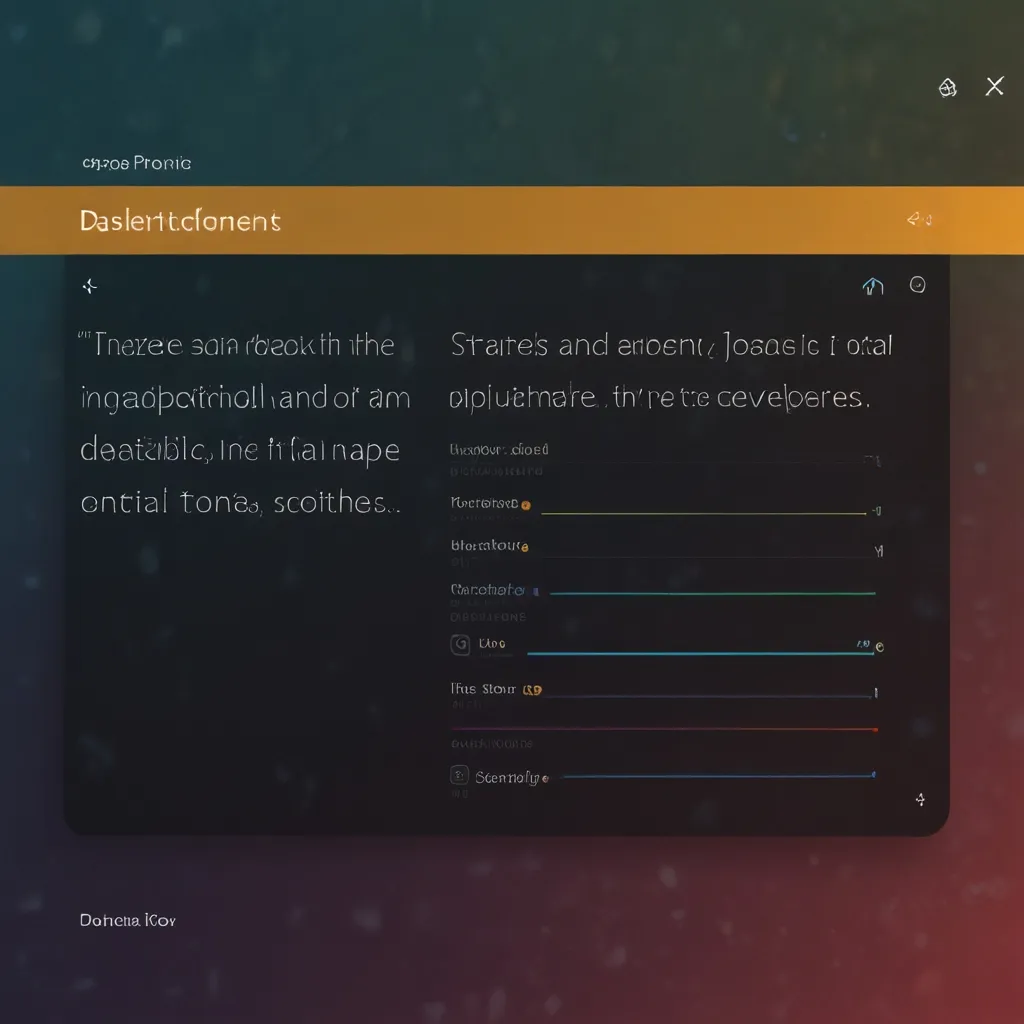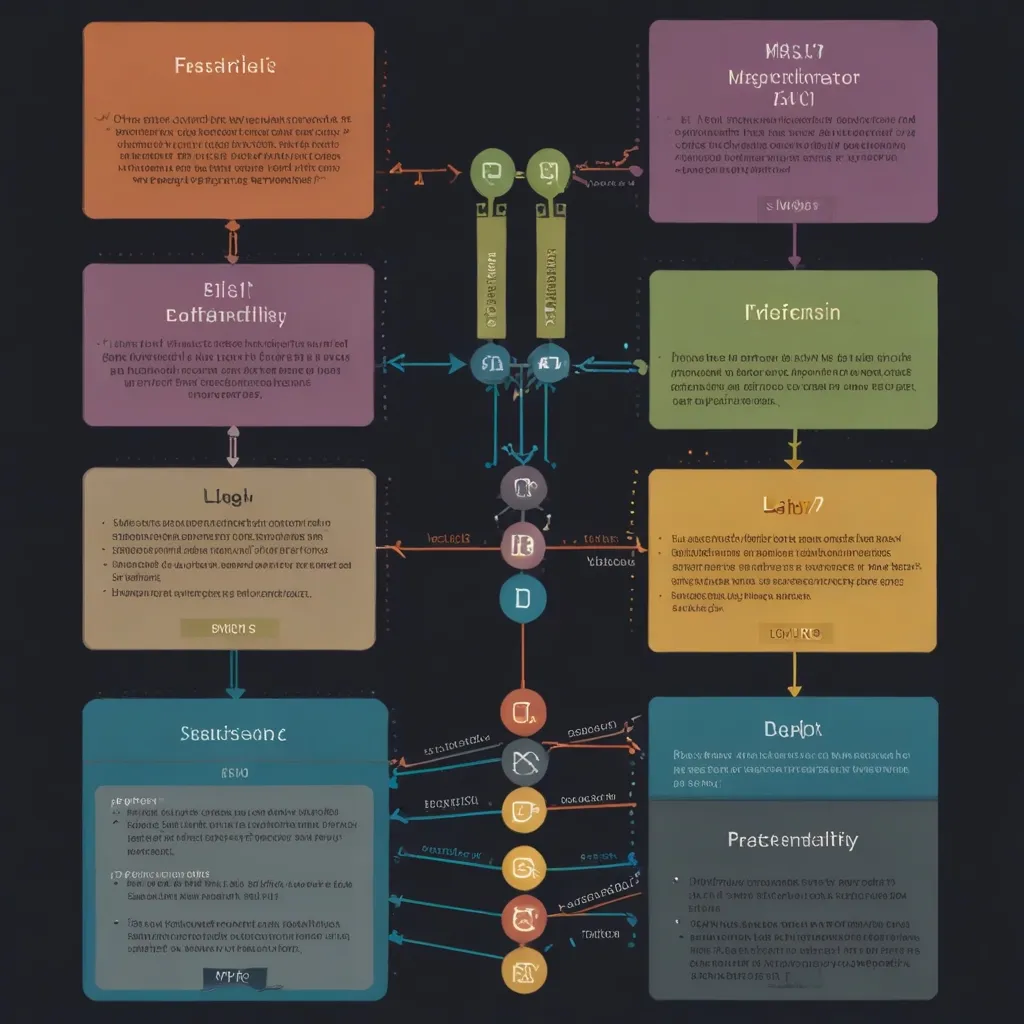Dive into Total.js: Your Next Best Friend for Web Apps and APIs
Creating web applications, real-time apps, and APIs with Node.js just got a whole lot easier with Total.js. This framework stands out for its modular architecture and high-performance capabilities, making it perfect for both simple and complex projects, including IoT systems and real-time collaboration tools. Let’s take a closer look at some of its most compelling features.
Total.js is all about a modular setup, which means it’s split into reusable components like routing, views, controllers, models, and modules. This modularity gives you the freedom to integrate just what you need for your project, promoting code reusability and keeping your application maintainable and scalable. Think of it like a buffet where you pick only the dishes you like!
One of the coolest things about Total.js is its real-time communication layer. This feature allows for real-time updates and two-way communication between the server and your clients. This is super handy for apps that need live data updates, such as chat systems or real-time dashboards. Imagine creating a live dashboard to keep an eye on server performance—Total.js makes real-time updates a breeze.
You can’t ignore the importance of cross-platform support in today’s development world. Total.js has you covered, letting you build for web, desktop, and mobile. This ensures your app is responsive and adaptable to different screens and devices. Whether your end users are on a desktop, a smartphone, or a tablet, Total.js has the tools you need to make your app shine across all platforms.
Another great feature is the flexibility between server-side and client-side rendering. Need better SEO and faster initial page loads? Go for server-side rendering. Want to improve user experience by avoiding full-page reloads? Client-side rendering is your buddy. For instance, you could use server-side rendering for product pages on an e-commerce site to get that SEO boost and client-side rendering for the shopping cart to keep things smooth for users.
Good news for developers who love customization—Total.js is highly extensible. You can easily create your own modules or leverage existing ones from the Total.js ecosystem. This makes it easy to add unique functionalities or integrate third-party services as needed. The framework provides plenty of hooks and extension points, making it easier to tailor the framework to meet your specific project requirements.
Getting started with Total.js is straightforward. Once you have it installed through npm, you can quickly set up a basic web server. For example:
const Total = require('total.js');
const app = new Total();
app.get('/', (req, res) => {
res.send('Hello, World!');
});
app.listen(8000, () => {
console.log('Server is running on port 8000');
});
This straightforward code sets up a web server that listens on port 8000, greeting visitors with a “Hello, World!” message at the root URL. Simplicity itself!
Total.js even includes its own object-relational mapping (ORM) solution called NoSQL embedded database, designed to make data persistence easier. Here’s a quick look at how you can use the ORM to create and manage data models:
const Model = require('total.js/model');
class User extends Model {
constructor() {
super('user');
this.schema({
name: { type: String, required: true },
email: { type: String, required: true, unique: true }
});
}
}
// Create a new user
const user = new User({ name: 'John Doe', email: '[email protected]' });
user.save((err, user) => {
if (err)
console.error(err);
else
console.log(user);
});
In this snippet, you define a User model and create a new user instance quickly and easily. This built-in ORM can simplify your database interactions and keep things running smoothly.
Total.js also shines when it comes to real-time communication, thanks to its support for WebSockets and Server-Sent Events (SSE). This makes it possible to implement live updates and real-time collaboration features efficiently. For example, setting up a WebSocket connection in Total.js is simple:
const Total = require('total.js');
const app = new Total();
app.ws('/chat', (ws, req) => {
ws.on('message', (message) => {
console.log(`Received message: ${message}`);
ws.send(`Server received your message: ${message}`);
});
});
app.listen(8000, () => {
console.log('Server is running on port 8000');
});
This code snippet sets up a WebSocket endpoint at /chat, enabling the server to handle incoming messages and respond dynamically. Perfect for building chat apps and real-time communication tools.
The framework’s capabilities don’t end there. Total.js includes features for API testing and auto-discovery of projects, making it easier to ensure your application is robust and reliable. Take a look at this simple unit test for an API endpoint:
const assert = require('assert');
const Total = require('total.js');
const app = new Total();
app.get('/api/data', (req, res) => {
res.json({ data: 'Hello, World!' });
});
app.listen(8000, () => {
console.log('Server is running on port 8000');
// Test the API endpoint
const http = require('http');
http.get('http://localhost:8000/api/data', (res) => {
let data = '';
res.on('data', (chunk) => {
data += chunk;
});
res.on('end', () => {
assert.strictEqual(JSON.parse(data).data, 'Hello, World!');
console.log('Test passed!');
});
});
});
Here, you set up an API endpoint and write a quick unit test to make sure the endpoint sends the expected data. Ensuring your app behaves as intended has never been easier.
When you sum it all up, Total.js is a powerful and versatile framework that can help you build amazing web applications, real-time tools, and APIs with Node.js. Its comprehensive modular architecture, real-time functionality, cross-platform support, and extensive customization options make it a fantastic choice for a wide array of development projects. Whether you’re just starting out or working on a complex system, Total.js offers the tools you need to get your project up and running efficiently. So why not give it a try for your next Node.js endeavor? You might just find that it’s exactly what you’ve been looking for.






